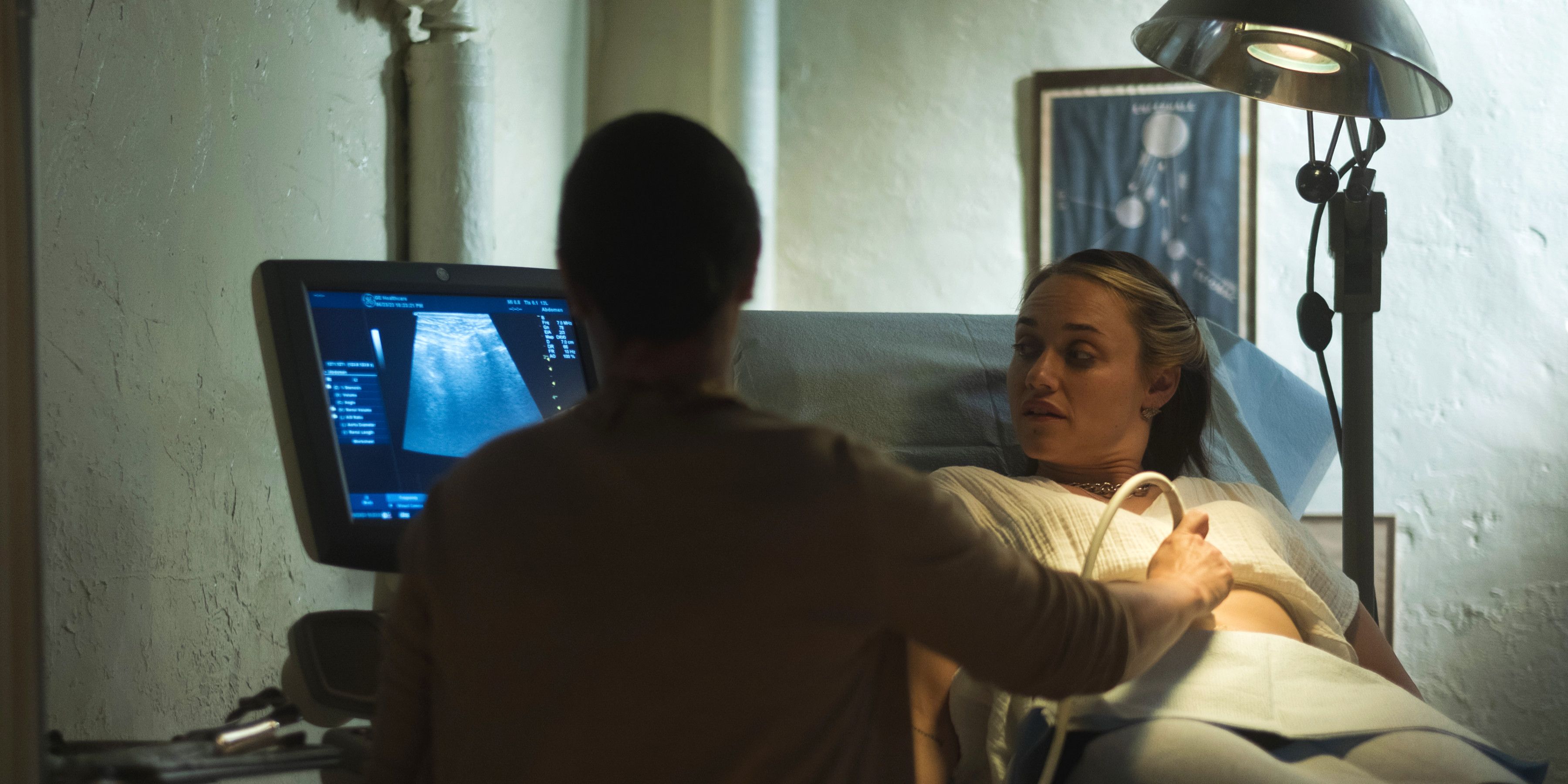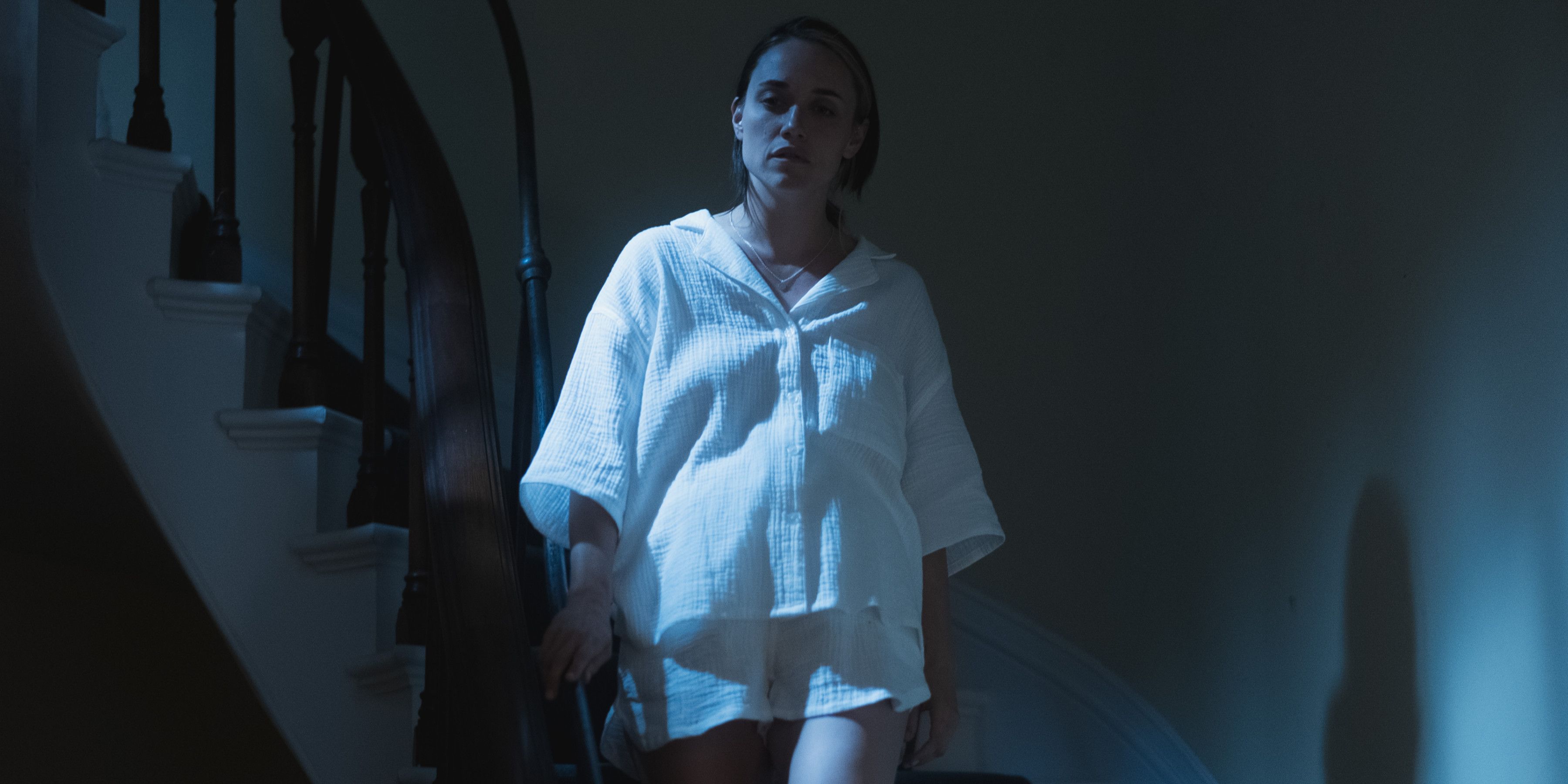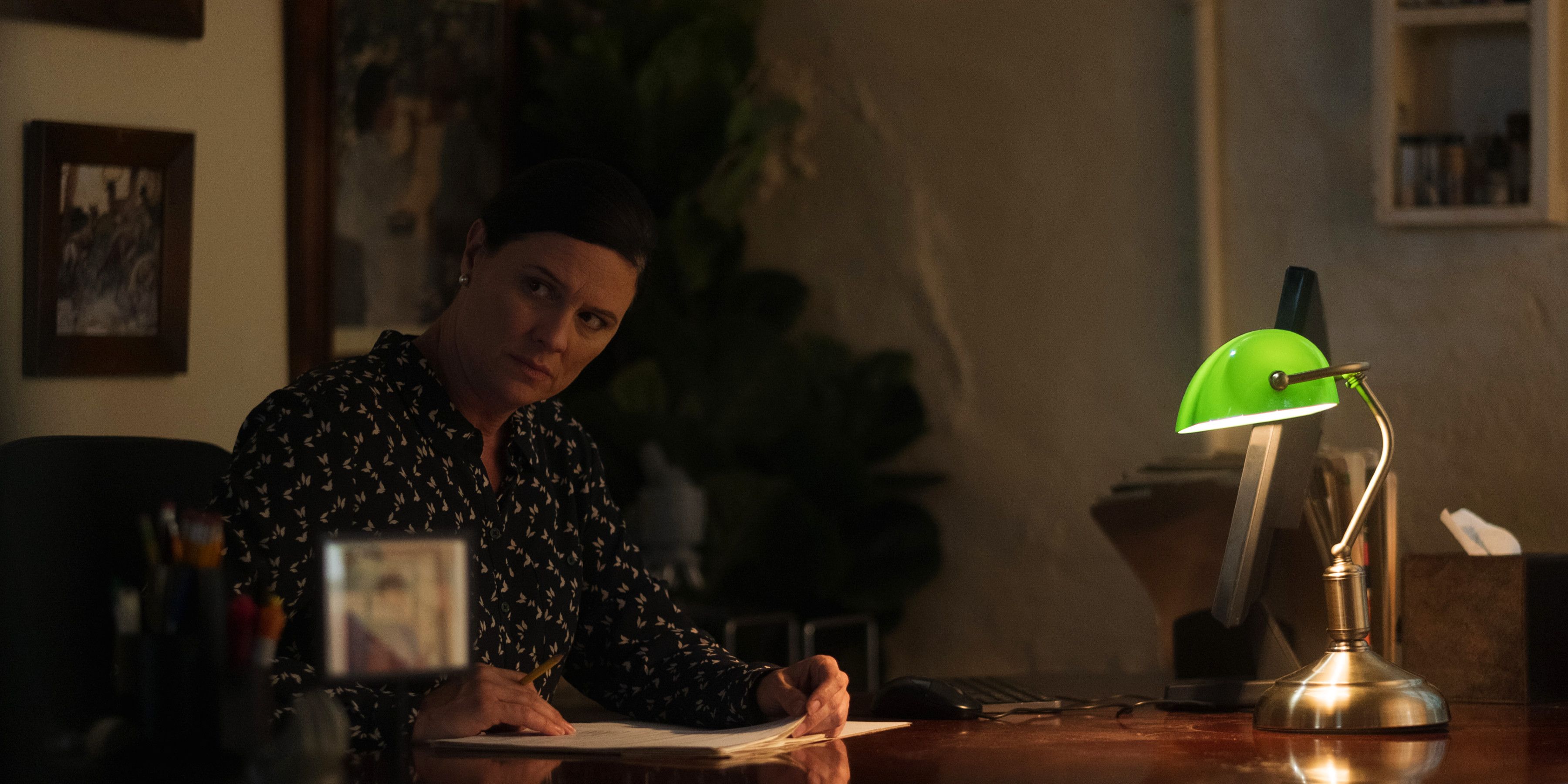I’ll be the first to admit that I love the niche pregnancy horror subgenre. These films can provide fascinating takes on the psychology of parenthood, and often contain unique commentary on the state of women’s healthcare. As such, I was excited about Birthrite, a new horror thriller by Ross Partridge.
The movie focuses on Wren (Alice Kremelberg), who inherits a house and moves there with her girlfriend Maya (Juani Feliz). Maya and Wren are excited when Wren is able to get pregnant, but soon find that the house is not as calming an environment as they would have hoped.
Birthrite Throws A Lot At The Audience
Birthrite‘s greatest strength also leads to its most glaring weakness. In some ways, the film is everything I love about pregnancy horror in that it addresses multiple intersecting themes about parenthood, family, the state of healthcare, and mental health as it relates to pregnancy.
This leads to a lot of strong character development, especially for Wren. Though the film jumps in too quickly and alienates the audience in its initial character presentations, I eventually felt for Wren on her distressing psychological journey of not being believed by doctors.
However, with so many themes at play, there are naturally some that do not land as well as others. The most notably underutilized element is Maya’s relationship with her parents. Their fraught connection is hinted at early on, and comes into play in the film’s second act in what was a stirringly acted scene between her and her mother.
It almost feels like there were deleted scenes to follow because there is no consequence for this highly emotional moment. This threw off Maya’s character development and left her as more the vessel for Wren’s metamorphosis than anything else.
The Film Is Twisty & Unexpected (But It Doesn’t Always Land)
Birthrite makes an incredibly bold choice during the first act that blew me away. The movie reveals something that changes our whole understanding of our main character’s reliability, and even what this story is about at its core.
And the movie does not stop there. Up until its last frames, it is full of twists and unafraid to venture off into unexpected directions. This narrative structure is by far the most compelling element of Birthrite, as it consistently kept me on the edge of my seat, dying to know what would happen next.
But not all the twists landed. Things started really picking up in the third act, and some otherwise-great content got lost in the shuffle of overly fast editing.
The Acting Is Occasionally Great
I want to shout out casting director Allison Estrin. But my feelings about her casting choices are complicated. Estrin’s track record, including Billions and Mᴀss, shows how she knows how to pick an ensemble, replete with scene-stealing one-off characters and well-paired duos.
These sensibilities are really shown off here. Supporting actors such as Jennifer Lafleur steal the show later on in the film, showing off Estrin’s astute eye for strong supporting performers.
Leads Kremelberg and Feliz, however, seem more swallowed up by the film’s themes. Once their motivations and struggles are made clear, Wren and Maya are proven to be pretty complex characters.
Like the film itself, however, it took me a while to find Kremelberg and Feliz’s performances to be truly believable. Actors like Lafleur or Callie Beaulieu outshine them even in brief scenes. This detracted from my immersion in the film, especially in the first act, where I was thrown off by the seeming stiltedness of the leads.
Kremelberg seems more comfortable acting with intensity than she does with subtler moments, which serves her well in the final act. While Birthrite had some flaws throughout, Partridge knocked it out of the park in the third act, leaving things on a strong note.








